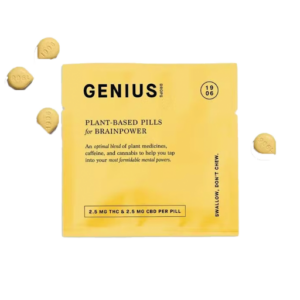Trauma doesn’t come with a warning sign or a rulebook. It shows up differently in everyone, and depending on when it enters your life, it can shape everything from how you see the world to how you care for yourself. At Major Bloom, we understand that healing is personal, and community care starts by talking about the things people often shy away from, like trauma, mental health, and cannabis as a legitimate form of therapy.
As more adults turn to therapy, alternative healing practices, and even cannabis to process their trauma, one truth remains: Healing is not one-size-fits-all. By unpacking the differences between childhood and adulthood trauma and how people are coping — especially with the rise of psychiatric medication use — we open the door to deeper conversations and better solutions. And for many people, cannabis offers an approach rooted in self-awareness, intention, and care.
 Childhood vs. Adulthood Trauma: What’s the Difference?
Childhood vs. Adulthood Trauma: What’s the Difference?
Trauma is any experience that overwhelms your ability to cope. Whether it happens as a child or an adult, it can live in your body, impact your thoughts, and shape how you navigate relationships and stress.
Common childhood trauma includes:
- Physical or emotional abuse
- Neglect
- Domestic violence
- Parental incarceration or substance abuse
- Loss of a caregiver
These early experiences can disrupt brain development and increase the risk of anxiety, depression, substance use, and chronic health issues later in life.
In adulthood, trauma can come from:
- Losing a loved one
- Being in a serious accident
- Experiencing violence or assault
- Military combat or service-related PTSD
- Surviving a natural disaster or community crisis
While adults generally have more tools and autonomy to process trauma, that doesn’t always mean they’re better equipped to heal. And many adults are still grappling with unresolved childhood pain, now layered with new burdens.
Healing Through the Ages: How Trauma Shows Up Over Time
Trauma doesn’t always crash into your life — it often builds in subtle, quiet ways. Micro-aggressions, toxic relationships, and sustained stress can slowly alter your mental and physical health. And when more significant traumatic events hit — divorce, injury, loss, for example — they’re often compounded by what’s already unhealed.
In the U.S., more people than ever are turning to therapy to process these experiences. In 2022, nearly 56 million Americans received some form of mental health support. And yet, prescriptions for psychiatric drugs are also climbing, especially antidepressants and anti-anxiety medications. For some, these medications are life-saving. But for others, they come with side effects, dependency, and a disconnect from root causes.
We’re not saying throw away the script. We’re saying let’s look at all options, especially those that come from the earth.
 Can Cannabis Help Adults Heal?
Can Cannabis Help Adults Heal?
Emerging research suggests cannabis can support emotional regulation, reduce stress, and help manage symptoms of PTSD, anxiety, and depression, particularly in adults. One federal study found that veterans with PTSD experienced relief from symptoms when using cannabis strains high in THC. More importantly, cannabis doesn’t carry the same overdose risk as many Schedule II psychiatric medications.
As Dr. Uma Dhanabalan, a respected cannabis physician, says:
“No one has ever died from cannabis.”
Cannabis isn’t a cure-all, but when used intentionally and mindfully, it can be a powerful tool in someone’s healing journey. Unlike many psychiatric drugs, cannabis can create space for self-reflection and creativity and can calm the nervous system without numbing or suppressing core emotions.
What Works for Kids vs. Adults — and Why It Matters
Children process trauma differently. Their healing is often guided by caregivers, with methods like play therapy, art therapy, or family-based interventions. Their environments and support systems have a massive impact on how they bounce back from adversity.
Adults, on the other hand, have more autonomy but also more responsibilities, less time, and often more trauma. Healing might include therapy, movement, mindfulness, nutrition, community support — and for some, cannabis. While cannabis use is legal in Massachusetts at age 21 for recreational use, medical patients can be certified at 18. Still, research suggests that waiting until age 24 — when the brain fully develops — is best for long-term cognitive health.
Some policy advocates are even pushing to raise the recreational age limit from 21 to 24 for this reason.
 Where Does the U.S. Stand on Cannabis and Mental Health?
Where Does the U.S. Stand on Cannabis and Mental Health?
While 47 states have some form of medical cannabis program, Idaho, Nebraska, and Kansas continue to deny patients access to plant-based medicine. In most medical states, patients must be 18+, with exceptions made for minors under specific parental and physician guidance.
This patchwork approach to cannabis access reflects deeper issues in how we treat mental health in this country: inconsistently, often reactively, and rarely holistically.
Final Thoughts: Healing, Community, and the Future of Cannabis Therapy
At Major Bloom, we believe cannabis is more than a product — it’s a platform for healing, empowerment, and progress. Whether you’re navigating trauma from your childhood, adulthood, or both, know that you’re not alone, and your path to healing doesn’t have to look like anyone else’s.
Therapy helps. Exercise helps. Connection helps. And for many, cannabis helps, too.
Let’s keep pushing for research, access, and honest conversations. Because when we normalize talking about trauma — and make space for diverse healing paths — we not only break cycles, we build better communities.
Note: This content is for educational purposes only and does not constitute or replace professional medical advice. Please consult a licensed healthcare provider before starting or changing any treatment plan.
Sources
- Wikipedia
- Management of post-traumatic stress disorder
- March 5, 2025 — ART THERAPY Art therapy may alleviate trauma-induced emotions, such as shame and anger. Through careful choice of art subject and form, such as self portraits, trauma survivors’ are likely to build s…
- PositivePsychology.com
- Childhood Trauma & Its Lifelong Impact: 12 Resources
- April 28, 2024 — Mindfulness techniques, such as deep breathing exercises, meditation, and grounding exercises, can help individuals cultivate present-moment …
- Therapy Group of DC
- Navigating Childhood Trauma Therapy as an Adult
- December 12, 2024 — This guide will explore effective therapy approaches for addressing childhood trauma as an adult, helping you choose the right therapist, and preparing for the …
- Dawn Wellness Thailand
- The Effects of Childhood Trauma in Adults l The Dawn Rehab
- November 10, 2024 — We list four common coping mechanisms below, to help you recognise some of the more abstract symptoms of potential trauma in a person’s life.
- Home
- Upending Conventional Wisdom, Cannabis Use Doesn’t Hinder …
- June 9, 2024 — Researchers determined that people using cannabis at the start of therapy benefited from PTSD treatment. Participants in both cannabis groups – …
- PositivePsychology.com
- Childhood Trauma & Its Lifelong Impact: 12 Resources
- April 28, 2024 — Mindfulness techniques, such as deep breathing exercises, meditation, and grounding exercises, can help individuals cultivate present-moment …
- VA.gov | Veterans Affairs
- [PDF] id1629937.pdf
- January 9, 2024 — High rates of cannabis use among people with posttraumatic stress disorder (PTSD) have raised questions about the efficacy of evidence-based …
- Integrative Life Center
- Coping Strategies for Adults with Childhood PTSD
- January 7, 2024 — Recognize the Trigger · Practice Grounding Techniques · Reach Out for Support · Utilize Distraction Techniques · Create a Safety Plan · Consider …
- The Veterans of Foreign Wars of the U.S.
- Federal Study Finds Cannabis Beneficial for PTSD Treatment – VFW
- September 20, 2021 — Results of a study released in march revealed improvements among PTSD patients receiving cannabis doses with higher levels of THC.
- PMC
- Cannabis in the management of PTSD: a systematic review – PMC
- Results from unpooled, high RoB studies showed that cannabis was associated with a reduction in overall PTSD symptoms and improved QOL.
- PMC
- The Use of Medicinal Marijuana for Posttraumatic Stress Disorder
- Many of the published studies suggest a decrease in PTSD symptoms with marijuana use. Though the directionality of cannabis use and PTSD could not be fully …
- NCBI
- Understanding the Impact of Trauma – NCBI
- This is because most trauma survivors are highly resilient and develop appropriate coping strategies, including the use of social supports, to deal with the …
- PMC
- RECIPROCAL PROCESSES IN TRAUMA AND COPING
- There is evidence that trauma and coping are linked, with cross-sectional work suggesting that individuals with more trauma exposure show poorer coping ability …
- ScienceDirect
- The impact of childhood trauma on children’s wellbeing and adult …
- To examine if coping mechanisms such as denial, self- isolation, drug and alcohol abuse are associated with childhood trauma survivors. Correspondingly, this …
- RACGP
- Adult survivors of childhood trauma – RACGP
- Potential coping strategies include lifestyle factors (sleep, exercise, diet), distraction, connection with others, pursuing meaning and purpose in life (eg …
- VA.gov | Veterans Affairs
- Cannabis Use and PTSD Among Veterans – National Center for PTSD
- Research to date does not support cannabis as an effective PTSD treatment, and some studies suggest cannabis can be harmful, particularly when used for long …
- Frontiers
- Medical cannabis for treatment-resistant combat PTSD – Frontiers
- The study we conducted is consistent with existing literature which indicates a decrease in PTSD symptoms under medical cannabis treatment.
- Excel Psychiatry
- Childhood Trauma’s Impact on Adult Mental Health – Excel Psychiatry
- To cope with the overwhelming emotional pain, individuals who have experienced childhood trauma may develop maladaptive coping mechanisms. Substance abuse …
- MDPI
- Impact of Cannabis Use on Treatment Outcomes among Adults …
- Conclusion: Cannabis use was not associated with adverse outcomes in end-of-treatment PTSD and primary substance use, suggesting independent pathways of change.
- Kaiser Permanente Division of Research
- Impact of Cannabis Use on Treatment Outcomes among Adults …
- CONCLUSION: Cannabis use was not associated with adverse outcomes in end-of-treatment PTSD and primary substance use, suggesting independent

 Can Cannabis Help Adults Heal?
Can Cannabis Help Adults Heal? Where Does the U.S. Stand on Cannabis and Mental Health?
Where Does the U.S. Stand on Cannabis and Mental Health?